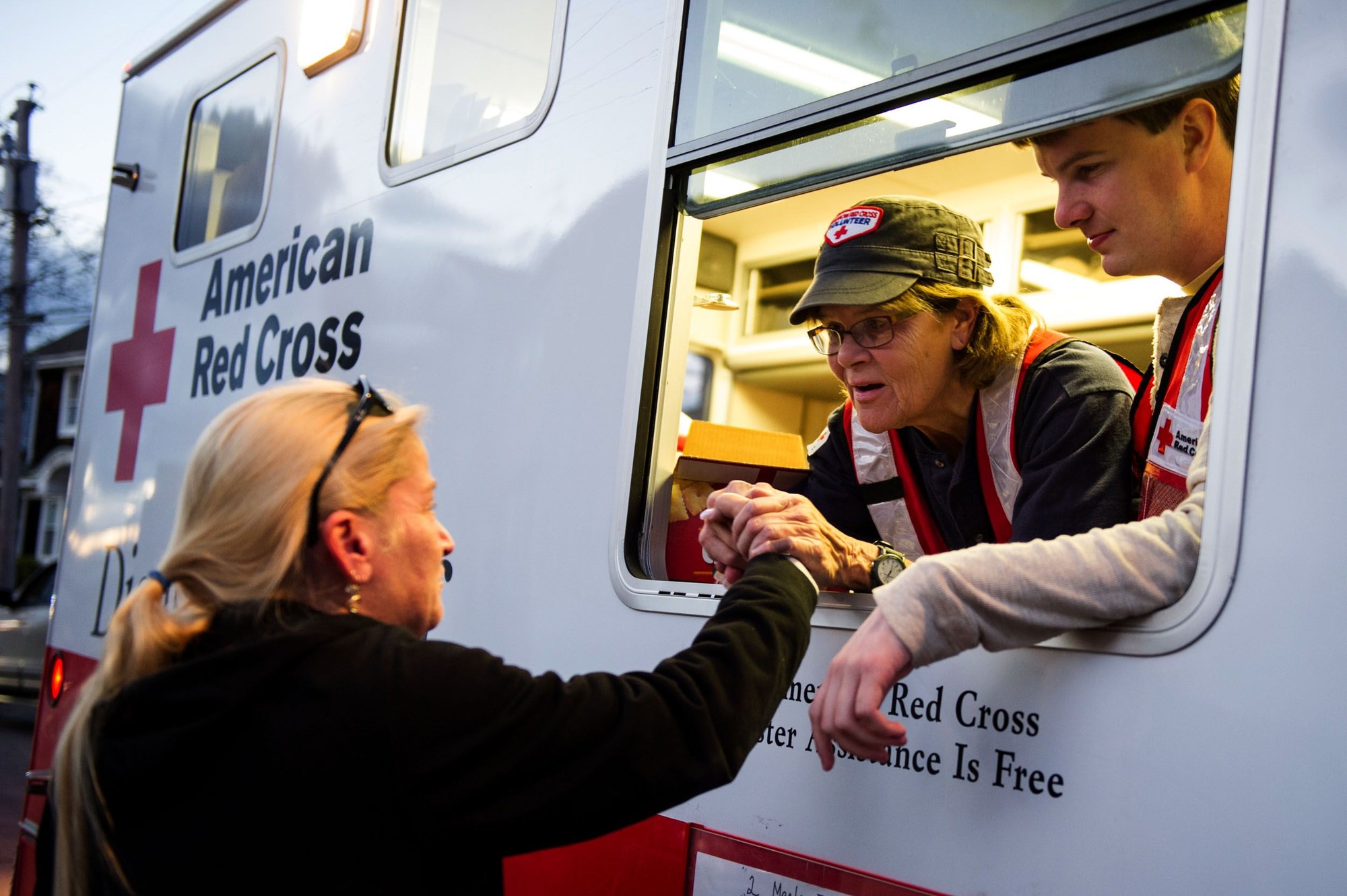Red Cross geared up for blizzard, offers guidelines
As Long Island residents experiences its first major snowfall of the season, so too are relief organizations across the area.
The American Red Cross has placed volunteers on alert and is prepared to respond, as needed, to storm-related emergencies, according to Communication Director Michael de Vulpillieres.
“We’re working very closely with Nassau and Suffolk officials to determine what the needs are,” de Vulpillieres said. “Right now we’re ready and mobilized.
“As of now there are no plans to open up shelters,” he added, “ but that could change.”
Randi Shubin Dresner, president and CEO of Island Harvest, Long Island's largest hunger relief organization, said the storm shouldn't effect her organization's efforts in feeding people in need. "Island Harvest food bank's emergency preparedness protocol ensures that its network of food pantries, soup kitchens and other emergency feeding programs across Long Island have a sufficient supply of allocated food product necessary to meet the needs of the clients served," Dresner said Thursday afternoon. "We are closely monitoring the storm, and will continue to make scheduled food deliveries as safe road conditions allow. At this point we feel confident that our agencies have enough food on hand for the next 24-48 hours."
The most important thing people can do now, de Vulpillieres said, is to get prepared. According to the National Weather Service, a blizzard warning goes into effect at 6 p.m. The Red Cross released tips for people to use prior, during and after the storm:
- Listen to a NOAA Weather Radio or other local news channels for critical information on snowstorms and blizzards from the National Weather Service (NWS).
- Avoid driving when conditions include sleet, freezing rain, snow or dense fog.
If travel is necessary, make sure you have a disaster supplies kit in your vehicle which includes: shovel, blanket, flashlight, water, snacks, first aid kit, extra batteries, sack of sand or cat litter.
-Keep the gas tank full. A full tank will keep the fuel line from freezing.
- Before tackling strenuous tasks in cold temperatures, consider your physical condition, the weather factors and the nature of the task.
- When shoveling snow, take frequent breaks to avoid risk of injury or cardiac arrest.
- Protect yourself from frostbite and hypothermia by wearing warm, loose-fitting, lightweight clothing in several layers. Stay indoors, if possible.
- Bring pets inside during winter weather.
- Make sure coats, gloves or mittens, hats, boots and warm clothing are available for all household members, along with extra blankets.
- Eat regular meals and stay hydrated, but avoid caffeinated or alcoholic beverages.
HOME HEATING SAFETY
Heating fires are the second leading cause of home fires.
- Keep all potential sources of fuel like paper, clothing, bedding or rugs at least three feet away from space heaters, stoves, or fireplaces.

 50.0°,
Fair
50.0°,
Fair 




